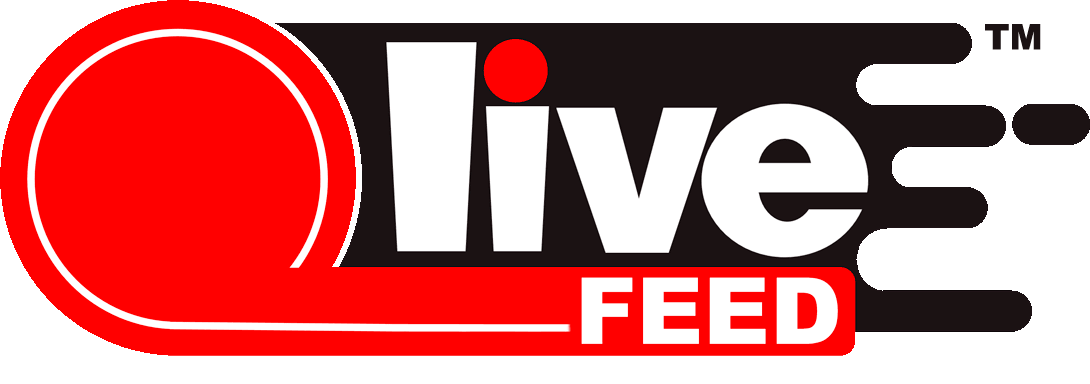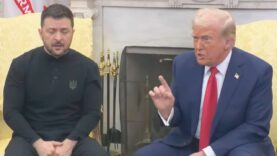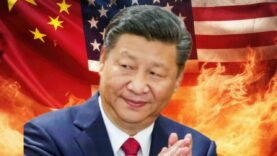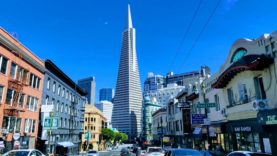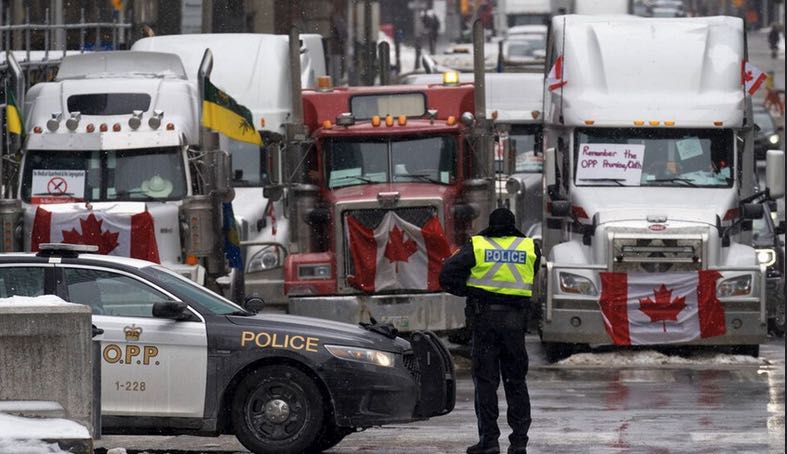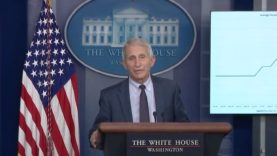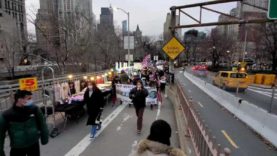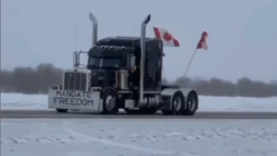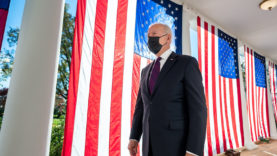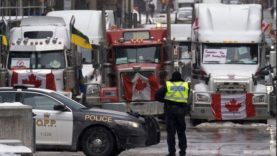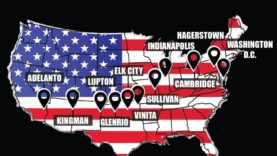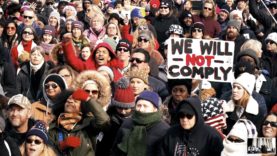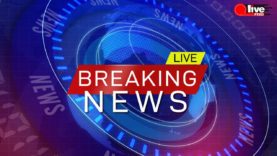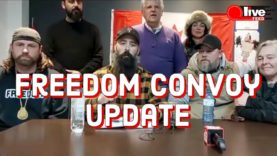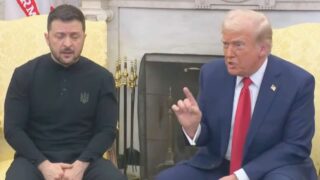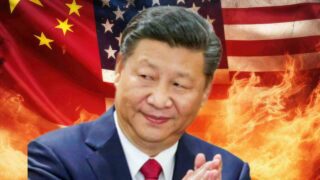Trudeau invokes the Emergencies Act, Ottawa Police Chief resigns: all you need to know
On Monday, Canada’s Prime Minister Justin Trudeau invoked the never-before-used Emergencies Act, previously known as the War Measures Act. The decision comes in amid the continuous anti-mandate protests taking place all over the country and in Ottawa for over three weeks.
What is the Emergencies Act?
The Emergencies Act has become federal law in 1988. In short, it provides the legal framework for “special temporary measures to ensure safety and security” and gives powers to the state to amend other acts. Under the Act, a national emergency is defined as a situation that’s of urgent, critical and temporary nature. The Act states that it can only be imposed if the situation cannot be dealt with through any other law in Canada.
The Act covers four types of emergencies: public welfare emergency, public order emergency, war emergency and international emergency.
Notably, the Act does not cover lawful protests.
How does the Emergencies Act come into effect?
After the Prime Minister invokes the Act, it still has to be approved by the Parliament. The Parliament also has the right to revoke the Act. Additionally, any regulations or orders passed under the act still can be challenged in Canadian courts.
At this moment, the Canadian Parliament is still debating this issue.
As part of the parliamentary oversight requirements in invoking these powers, the government must table a motion in both the House and Senate within seven sitting days outlining why federal officials feel the powers are required and detailing what specific measures will be taken, to allow the two parliamentary bodies to confirm or deny it.
The federal Liberal government is in minority, so the support of both the House and the Senate leaders will be crucial for them in order to push the Act through. As of now, the motion was still not presented to the House for review. According to Government House Leader Mark Holland, the motion will be introduced to the House “imminently.”
“We’ll be introducing a motion into the House imminently. Obviously, these are provisions that have never been used before, so we want to make sure that we’re proceeding prudently,” Holland told reporters ahead of a cabinet meeting. “We are working and having conversations with other opposition parties… There’s obviously conversations that are taking place with Senate leadership as well.”
Once the motion is tabled, the debate will begin on the next siting day and will continue, according to the Act, “without interruption” until the vote is ready to be called, either when the list of speakers has been exhausted or if the government imposes closure on the debate.
If the motion is adopted — the emergency powers will remain in effect. As of now, this is still an open question.
Who condemns, and who supports the Emergencies Act?
The Canadian Civil Liberties Association (CCLA) has cited that the invoked Emergencies Act lacks reason and threatens civil liberties of Canadian citizens.
“The federal government has not met the threshold necessary to invoke the Emergencies Act. This law creates a high and clear standard for good reason: the Act allows the government to bypass ordinary democratic processes. This standard has not been met.
The Emergencies Act can only be invoked when a situation “seriously threatens the ability of the Government of Canada to preserve the sovereignty, security and territorial integrity of Canada” & when the situation “cannot be effectively dealt with under any other law of Canada.”
Governments regularly deal with difficult situations, and do so using powers granted to them by democratically elected representatives. Emergency legislation should not be normalized. It threatens our democracy and our civil liberties,” wrote the CCLA in a tweet.
Additionally, premiers of several provinces have already publicly condemned Trudeau for invoking the emergency powers in order to deal with peaceful protesters.
Quebec Premier Francois Legault said that imposing the Act risks putting “oil on the fire” by further polarizing the population and argued that local authorities in the province have the situation under control.
“There’s a lot of pressure right now and I think we have to be careful. So it’s about time we put all Quebecers together. But I can understand that enough is enough in Ottawa. You can protest but you cannot do what they are doing since two weeks,” Legault added.
Ontario Premier Doug Ford, who earlier announced an end to pandemic mandates and restrictions, has emphasized that he supports “the federal government and any proposals they have to bring law and order back” to the province. He also went further and has called the protesters “occupiers.”
“These occupiers, they’re doing the total opposite what they say they’re there to do. They’re hurting hundreds of thousands of families, millions of jobs across the province,” Ford told reporters.
In Manitoba, Premier Heather Stefanson took a different approach, emphasizing that “caution must be taken against overreach and unintended negative consequences.”
“This ultimate federal legislation should only be considered on a measured and proportional basis, in locations where it is truly needed,” Stefanson noted.
Saskatchewan Premier Scott Moe has stated that the federal Emergencies Act is not needed in the province. Saskatchewan does not support the Trudeau government invoking the Emergencies Act.
“If the federal government does proceed with this measure, I would hope it would only be invoked in provinces that request it, as the legislation allows,” Moe posted on Twitter.
Alberta Premier Jason Kenney who was the first one to announce an end to Covid restrictions amid ongoing protests stated that he doesn’t “support” invoking the Emergencies Act.
“I think at this point, for the federal government to reach in over top of us without offering anything in particular, would frankly be unhelpful,” said Kenney.
“I think we need to find ways to effectively enforce without escalating the system,” Kenney stated.
What measures is Trudeau seeking to take?
On Monday, Trudeau held a press conference about invoking the Act.
“The police will be given more tools to restore order in places where public assemblies constitute illegal and dangerous activities, such as blockades and occupations as seen in Ottawa, Ambassador Bridge and elsewhere. The blockades are harming our economy and endangering public safety. We cannot and will not allow illegal and dangerous activities to continue,” he said in a news conference.
Additionally to imposing fines, Trudeau is planning to attack the protesters financially, giving the banks the right to freeze bank accounts of anyone linked to the protests even without the need for a court order.
Ottawa Police Chief resigns the next day after Trudeau invoked The Emergencies Act
Ottawa’s Police Chief Peter Sloly publicly announced his resignation on Tuesday, in less than 24 hours after Trudeau has invoked The Emergencies Act.
“Since the onset of this demonstration, I have done everything possible to keep this city safe and put an end to this unprecedented and unforeseeable crisis,” he said, adding that police had acquired new resources and enforcement tools to deal with “the occupation.”
Sloly made the decision with “a heavy heart,” he said in a statement posted on Twitter. His contract was up until 2024, and last week he has stated he was not going to resign.
What now?
The protest in Ottawa continues despite the heavier police presence. During today’s press conference, the convoy’s organizers and veterans have asked everyone to come to Ottawa.
“Please come. Your country needs you, and we need your support. We need the hearts and minds of everyone in Canada to land your voice, to speak up and stand up, and to tell people that you know, people that are in positions of trust and in your political arena that this is wrong, and we’re not standing for that. They need to listen to what people have to say and up to this point, no one has been listening,” the convoy’s organizers said during today’s press conference.
This is a developing story, please check back for updates. Do you have anything else to share or add to this coverage? Sign up for a free account, and post directly to our LiveFEED! Subscribe to our Youtube channel here.

